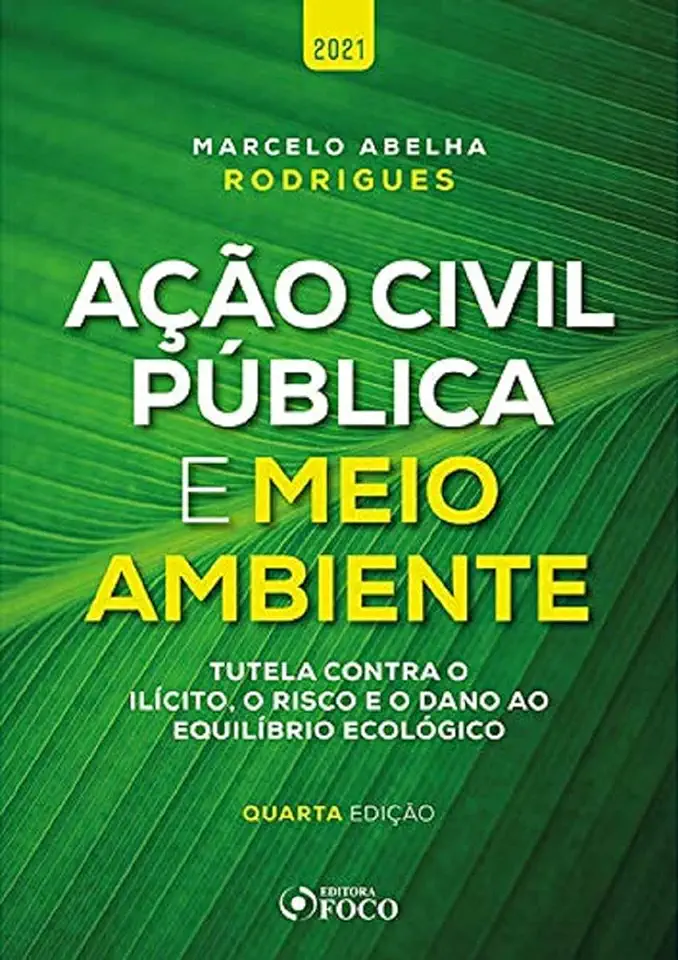
Public Civil Action and Environment - Marcelo Abelha
Public Civil Action and Environment
Introduction
In his book "Public Civil Action and Environment", Marcelo Abelha provides a comprehensive and thought-provoking analysis of the role of public civil action in environmental protection. Drawing on a wealth of case studies from around the world, Abelha argues that public civil action is essential for ensuring that environmental laws and regulations are effectively enforced and that polluters are held accountable for their actions.
The Importance of Public Civil Action
Public civil action is a powerful tool for protecting the environment because it allows citizens to take legal action against polluters and other entities that are harming the environment. This can be done through lawsuits, administrative complaints, or other legal mechanisms. Public civil action can also be used to raise awareness of environmental issues and to pressure governments and businesses to take action to protect the environment.
Case Studies
Abelha provides a number of case studies from around the world that illustrate the effectiveness of public civil action in protecting the environment. These case studies include:
- The case of the Love Canal chemical dump in the United States, where residents successfully sued the Hooker Chemical Company for contaminating their community with toxic chemicals.
- The case of the Minamata mercury poisoning incident in Japan, where residents successfully sued the Chisso Corporation for polluting the environment with mercury, which caused widespread health problems.
- The case of the Bhopal gas tragedy in India, where residents successfully sued the Union Carbide Corporation for a gas leak that killed thousands of people.
These case studies demonstrate that public civil action can be a powerful tool for holding polluters accountable for their actions and for protecting the environment.
Challenges to Public Civil Action
Despite its effectiveness, public civil action faces a number of challenges. These challenges include:
- Lack of resources: Public interest groups often have limited resources, which can make it difficult to bring legal action against polluters.
- Legal barriers: Some countries have laws that make it difficult for citizens to bring legal action against polluters.
- Political opposition: Polluters and other powerful interests often use their influence to block or weaken public civil action.
Conclusion
Despite the challenges, public civil action is an essential tool for protecting the environment. By providing citizens with the ability to take legal action against polluters, public civil action helps to ensure that environmental laws and regulations are enforced and that polluters are held accountable for their actions.
Call to Action
If you are concerned about the environment, I urge you to support public civil action. You can do this by:
- Donating to environmental organizations that support public civil action.
- Volunteering your time to help with public civil action campaigns.
- Speaking out against environmental injustice.
Together, we can make a difference and protect the environment for future generations.
Enjoyed the summary? Discover all the details and take your reading to the next level — [click here to view the book on Amazon!]